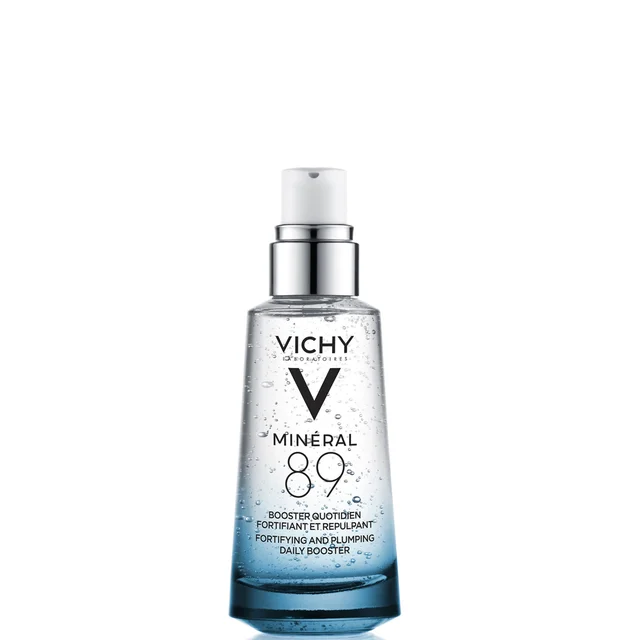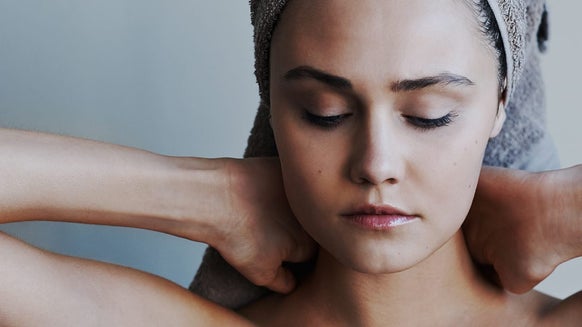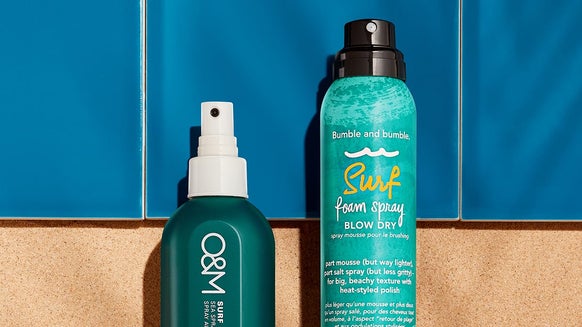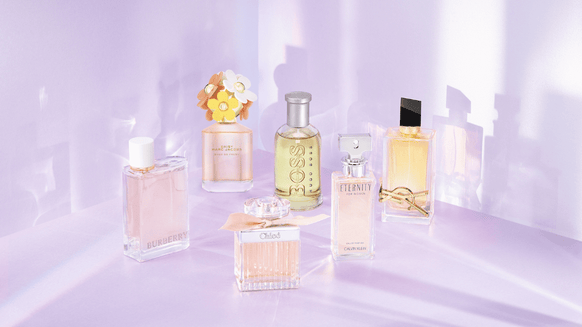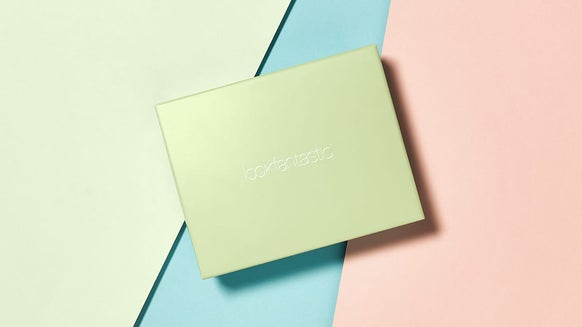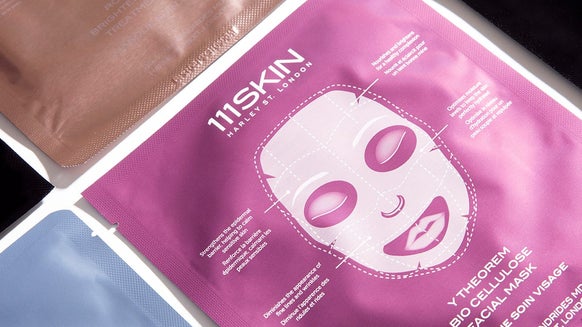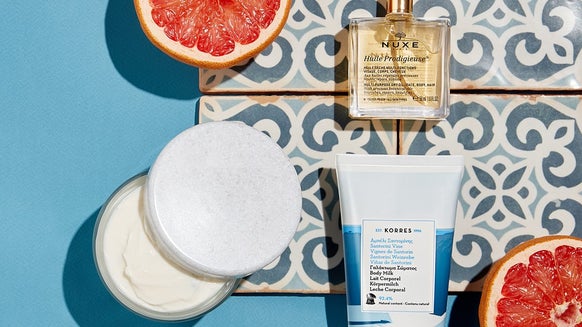How to keep your skin feeling FANTASTIC at every stage of its lifecycle
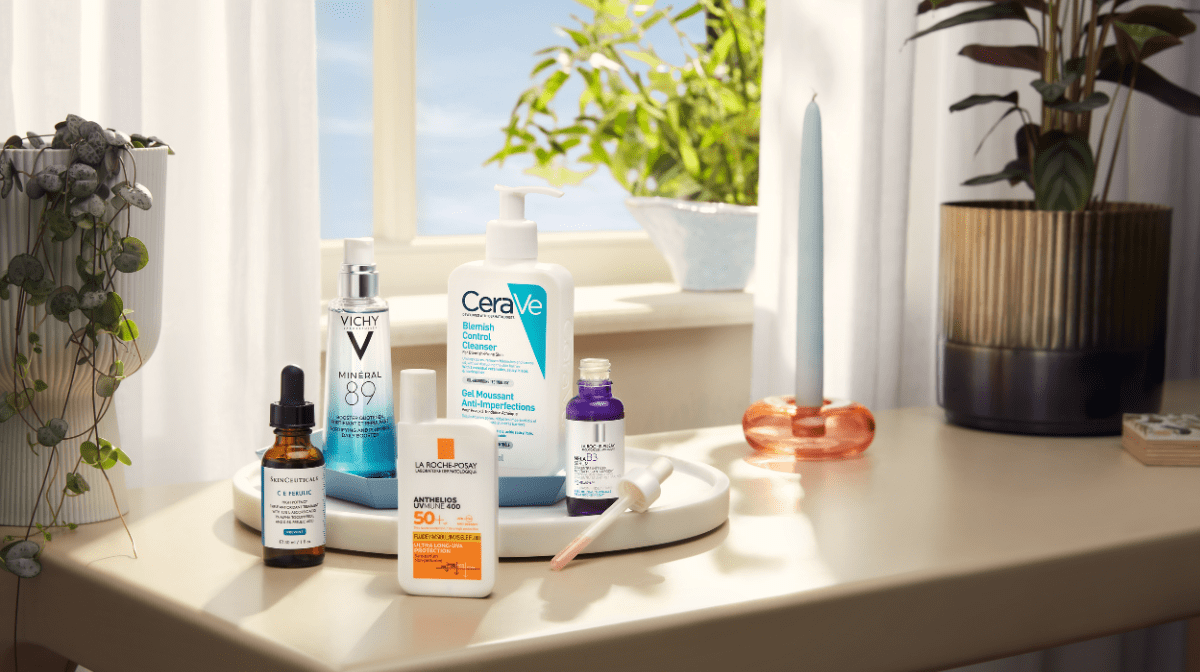
Embarking on the journey to skin confidence isn’t one-size-fits-all. There’s a whole host of reasons why you might not be feeling your most fantastic on a bad skin day – whether that’s due to redness, dryness and flaking, fine lines, and the rest! Couple that with the fact our skin undergoes many changes as we age, and you might be left feeling a little more stressed out than usual.
Sound like you? Then you’ll probably want to keep reading, because this year, we’re on a mission to increase confidence levels in our customers – as when you LOOKFANTASTIC, you feel it! We’re not in the business of gatekeeping the best tips and tricks to help you on your way to a healthy complexion, so, without further ado, we called on the brand experts to find out how to keep your skin feeling its best at every stage of its lifecycle – whether you’re working with teen skin, mature skin, or anything in between!
Teen Skin
What are some of the most common concerns for teen skin?
Your teenage years can be some of the most confusing for your skin. Hormones are just starting to make themselves known in the body, which can cause a variety of complexion concerns – whether that’s excess oil, breakouts, blemishes, post-acne marks, dullness, and the rest!
“During puberty, hormonal shifts lead to increased sebum production, and more prominent terminal hairs become visible on the face, while the epidermis thickens and becomes more resilient,” explains Dr Mary Sommerlad, consultant dermatologist at Vichy. “Dermatological conditions such as acne may appear due to the increase in sex hormones and growth hormones. [Plus], pigmentation issues may occur in childhood and pre-teens if there has been excessive sun exposure.”
“It is common for teen skin to have combination/oil-prone skin, and excess oils can lead to concerns such as blemishes or enlarged pores,” affirms Emily, CeraVe brand expert. “Hormones stimulate sebaceous glands and this produces more sebum oil, which can lead to concerns such as blemishes or enlarged or clogged pores.”
The best advice for teen skin
Thanks to those pesky hormones, teen skin is often subject to breakouts, blackheads and enlarged pores, making excess sebum production a high possibility. Luckily, the experts are on-hand to share their top oily skin tips:
“Cleansing our skin properly is important because if you don’t, it can lead to a build-up of dead skin cells, which could result in clogged pores [and] can sometimes cause blemishes,” shares Emily.
To give teen skin the refresh it deserves, without stripping away the natural lipid barrier, we commend a gentle but hardworking cleanser that focuses on your specific areas of concern. If breakouts or excess oil are your cross to bear, we recommend CeraVe Blemish Control Cleanser, a skin-loving formula powered by 2% salicylic acid and ceramides to help regulate sebum oil production while replenishing essential moisture.
“In teens, [dryness and dehydration] may occur through using harsh skincare that compromises the skin barrier, [or] spending time in environments at extreme temperatures – for example, excess sun exposure or skiing with very cold but dry weather,” says Dr Sommerlad.
For those dry or dehydrated areas, use a hydrating serum that’s packed with quenching ingredients suitable for all skin types. We love the Vichy Mineral 89 Serum for its lightweight, mineral-rich formula. It stars a blend of hyaluronic acid, volcanic mineralising water and a minimalist 11-ingredient formula to avoid confusing teen skin, while delivering a much-needed surge of moisture to thirsty complexions.
https://www.lookfantastic.com/p/vichy-mineral-89-hyaluronic-acid-booster-serum-50ml/11499284/
Our final, must-know piece of advice for teen skin? Ditch those harsh exfoliating acids and potent active ingredients! “Pre-teens and teens should avoid any skincare marketed as "anti- ageing", and in particular exfoliators and retinoids,” warns Dr Sommerlad. “This is because pre-teen and teen skin has peak levels of collagen and elastic fibres; the skin is more likely to experience side effects and not benefits.”
Young Adult Skin
What are some of the most common concerns for young adult skin?
If your teen years had you in a panic over your skin, not to worry! It turns out the best is yet to come. In fact…
“In young adulthood, the skin typically reaches its peak physiological condition, with a resilient skin barrier and optimal hydration levels in the dermis,” confirms Dr Sommerlad. “Skin is smooth, firm and elastic with an absence of evidence of sun damage, unless the skin has been exposed to excessive levels of sun exposure. This optimal skin stage is from the end of puberty to mid to later thirties.”
The best advice for young adult skin
When your skin is in its prime state, it’s the perfect time to start preserving your youthful complexion. Arguably the best advice out there? Ensure you’re making SPF your BFF!
“Applying high, broad-spectrum protection from an early age will help to protect the skin against sun damage and age spots later in life,” explains Emily, brand expert at La Roche-Posay. “We need to apply SPF daily, even in the colder months, because UV rays affect our skin all year round.”
Choose a high-performance formula with a strong protection factor – like the Anthelios UVMune 400 Invisible Shield. This gentle, non-perfumed formula is suitable for all skin types – especially sensitive! It’s great for warding off UVA, UVB and ultra-long UVA rays, thanks to its sweat- and sand-resistant properties.
Young adult skin may be at peak condition, but that doesn’t mean you need to start using every product under the sun to preserve it!
“Try not to overload your skin with active ingredients that may lead to disrupting your skin barrier,” Aruj confirms. “Young adults should opt for skincare ingredients suited to their individual skin type. Aim to protect and maintain your skin barrier with SPF and lipid-rich, emollient ingredients.”
Adult / Mature Skin
What are some of the most common concerns for adult or mature skin?
If there’s one thing we can be sure of in life, it’s that our skin’s needs are going to change as we age – and that it’s helpful to approach these changes with as positive a mindset as possible!
“From our mid to late thirties, our body’s ability to replace collagen and elastic fibres in the dermis of the skin reduces, making fine lines visible. Sun damage starts to present, with persistent freckling and larger dark spots,” reveals Dr Sommerlad.
The best advice for adult or mature skin
There are a few things we can do to help preserve our skin and prevent the appearance of dark spots and pigmentation. Firstly, if not already, you should be wearing a minimum SPF30 – every. Single. Day. Dr Sommerlad affirms: “The benefits of sunscreen everyday, even in the winter or if it is cloudy outside, has endless benefits for reducing the accelerated breakdown of collagen caused by the sun.”
Secondly, try incorporating a treatment step into your routine that’s specifically targeted to the concern at hand.
For those experiencing dullness, Aruj recommends keeping a lookout for radiance-boosting actives.
“Brightening formulas are often packed with skin-beneficial antioxidants to help enhance and restore radiance back into your skin as we age,” she shares. “Alongside helping to revive a lacklustre complexion, ingredients such a vitamin C and ferulic acid can help to improve the appearance of skin texture and minimise discolouration.”
“SkinCeuticals C E Ferulic Serum is an ideal addition to mature skincare routines to help protect your barrier from environmental aggressors. Vitamin E in this formulation can also help to stabilise vitamin C, thus helping your skin to achieve a radiant and smooth-looking finish. But most importantly, this serum is an excellent complement to sunscreen.”
For pigmentation and dark spots, we love La Roche-Posay MelaB3 Intense Anti-Dark Spot Serum. It contains a new multi-patented Melasyl™ active alongside retinol and 10% niacinamide, celebrated for its resurfacing action and ability to minimise the look of uneven tone. What’s more, it’s suitable for all adult skin types!
Perimenopausal and Menopausal Skin
What are some of the most common concerns for perimenopausal or menopausal skin?
Menopause can be a challenging time for your skin, inviting changes that many of us just aren’t expecting. But learning exactly how your complexion can change might just be the difference in accepting your skin at every stage of its lifecycle.
“Perimenopause marks the beginning of a decline in oestrogen levels, resulting in further decreased collagen production, thinning of the epidermis, and reduced skin elasticity,” shares Dr Sommerlad. “The perimenopause starts 8 to 10 years before the menopause – 12 months of no periods. Post-menopause, the skin continues to evolve, with further thinning of the epidermis, continued loss of collagen and elastin, reduced skin barrier function, and decreased hydration levels, leading to deeper static wrinkles, […] and increased/continued dryness and sensitivity.”
The best advice for perimenopausal or menopausal skin
“Perimenopause and menopause make it harder for your skin to retain moisture, and you may experience redness, dryness and dull-looking skin,” says Emily. “You might even become blemish-prone. Collagen and elastic have decreased again, resulting in deepened lines and visible wrinkles. Pigmentation from sun damage may also be present.”
If you are experiencing some, or all of the above, concerns – you’re in the right place! Allow us to breakdown the fundamentals…
Kind-to-Skin Cleanse For perimenopausal, blemish-prone skin, kickstart your skincare routine with an active face wash – like CeraVe Blemish Control Face Cleanser. It is powered by 2% salicylic acid to help buff away dead skin cells and minimise the risk of pore-clogging impurities.
Hydrate, Hydrate, Hydrate Next, make sure you factor in a hydrating treatment step, to help offset menopause-related dullness or dryness. As always, we love the dermatologist-recommended VICHY Minéral 89 Hyaluronic Acid Hydrating Serum. Not only is it great for all skin types, but it’s loaded with the brand’s highest concentration of volcanic mineralising water, plus hyaluronic acid, to quench, hydrate and replenish thirsty complexions.
Protect & Perfect Finally – you’ll need a reliable SPF that you’re likely to apply daily. Anthelios UVMune gives an invisible, non-greasy finish while safeguarding your skin against UVA, UVB and ultra-long UVA rays. It features a minimalist formula that can be worn alone or under makeup, creating an ultra-lightweight, barely-there shield from the sun.


